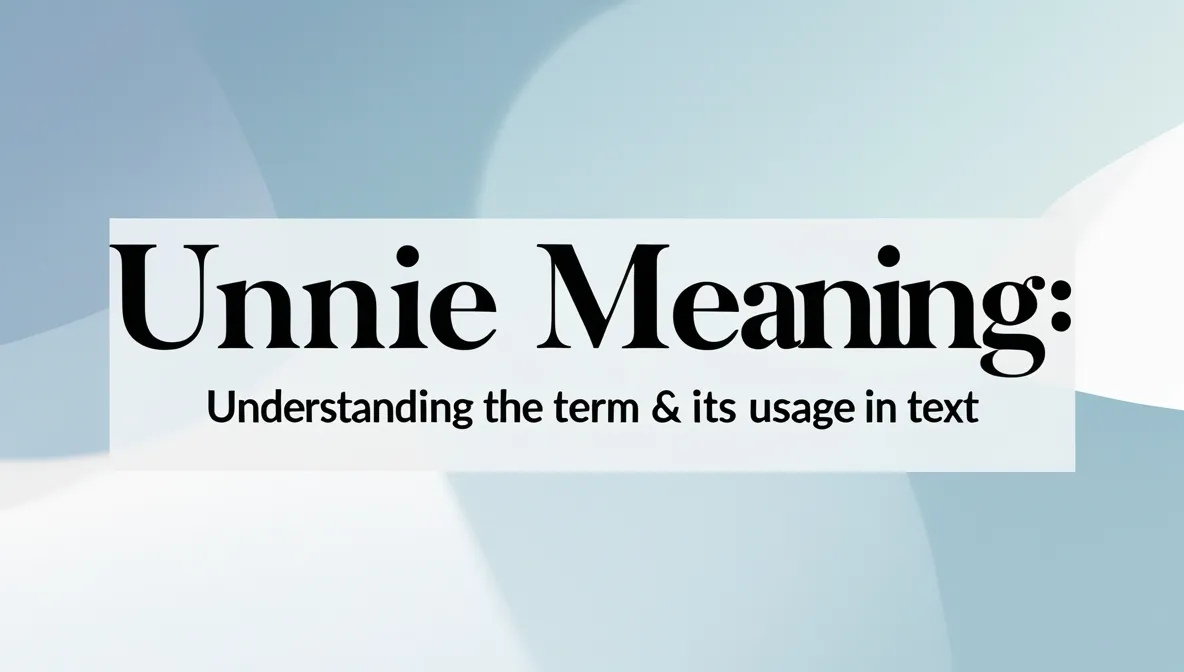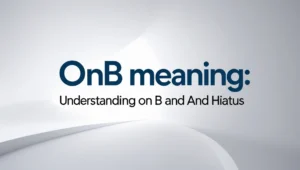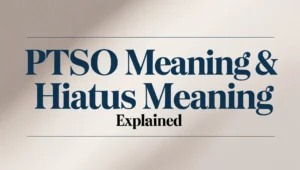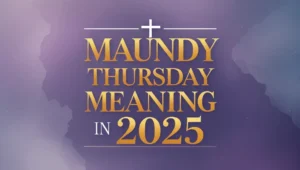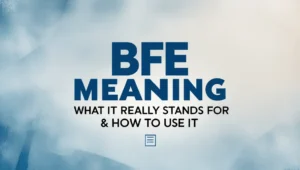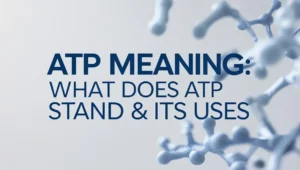On a quiet evening, two friends sit side by side, sharing stories of dreams, laughter, and shared struggles. Their eyes meet; a gentle hug follows. In that moment, the phrase unnie dances between them—an unspoken promise of care, warmth, and trust. It feels like a wedding anniversary: a celebration of loyalty, closeness, and the beautiful bond that time has woven between hearts. That is how “unnie” resonates in daily life—soft, comforting, and eternally familiar. Unnie Meaning: Understanding the Term & Its Usage in Text
In this article, we’ll gently explore the unnie meaning, how people use it in text and speech, and how it reflects deep affection, sisterhood, and emotional closeness. We’ll journey through variations, usage tips, cultural contexts, and more. May you finish reading feeling like you’ve discovered a cherished word that ties hearts together.
Sister‑term Definition: What Does “Unnie” Truly Mean
- A Korean word used by females to call an older sister figure 😊
- A term conveying respect, affection, and warm closeness 🤗
- A gentle way to show someone you view them as family 💕
- A word that can blend formality and intimacy in social use 🙂
- A way to signal caring protection toward someone younger 👭
- A term that carries both admiration and friendly comfort 💗
- A word often used among female friends in Korean culture 🎀
- A sign you see someone as reliable and affectionate 👑
- A title that softens authority with care 💖
- A manner to include someone in your inner circle 💌
- A relational label that binds in emotional resonance ✨
- A term that balances honor with warmth in address 🌸
- A way to acknowledge someone older but beloved 💫
- A title that bridges age and emotional closeness 🌷
- A gentle accolade wrapped in everyday speech 🌼
Female Older‑sister Word: Exploring ‘Unnie’ in Use
- Friends say unnie when they feel safe with someone 🛡️
- The word gives emotional comfort when spoken softly 💬
- Younger females often use unnie to ask advice 🤔
- Saying unnie can open doors to heartfelt talk 💞
- It conveys respect without distance 👥
- It makes casual chat feel more personal 💗
- It strengthens bonds in close communities 🤝
- It helps younger people express gratitude 💐
- It frames someone as mentor and sibling both 🎓
- It feels affectionate even in simple greetings 😄
- It invites trust when spoken sincerely 🕊️
- It wraps closeness around everyday speech 🧣
- It makes friendship feel like chosen family 🌟
- It softens requests when used in conversation 🎈
- It builds loyalty through continual address 💖
Sisterly Expression: Emotional Use of Unnie
- The word carries emotional warmth between friends 🥰
- It evokes memories of shared laughter and tears 😢
- It brings comfort when someone feels weak 🌱
- It signals unconditional support through thick and thin 🪷
- It becomes a gentle reminder that you belong 💞
- It creates a cozy emotional anchor in chat ⚓
- It lets you lean on someone older without shame 🤲
- It offers emotional refuge in a single word 🌿
- It deepens bonds beyond casual friendship 💘
- It frames someone as protector and confidante 🛡️
- It brings tender strength when you most need it 💪
- It becomes a safe whisper in times of stress 🕯️
- It offers emotional security across distance 🧸
- It becomes part of your everyday vocabulary 🌼
- It feels like a warm hand on your shoulder 🤝
Unnie Meaning: Understanding the Term & Its Usage in Text
Sister‑style Title: Usage of Unnie in Speech
- In conversation, someone might say unnie first 👋
- It often appears before someone’s name or nickname 😊
- It softens a directive or request from younger to older 🗣️
- It can serve as a term of endearment in dialogue 💗
- It appears in casual speech among female groups 🗨️
- It may accompany compliments or encouragements 💕
- It works in repeated dialogues for closeness 🔁
- It appears in banter to convey playful respect 😄
- It fits naturally into daily greetings like hi unnie 👋
- It often begins a question: unnie, can I ask you? ❓
- It injects affection into otherwise ordinary talk 🧁
- It lowers tension when spoken with sincerity 🌿
- It bridges the gap between formality and friendship 📱
- It can precede advice: unnie, tell me your view 💭
- It softens rebuke or correction in caring tone 🧡
Older Sister Label: Textual Usage of Unnie
- In messages you write unnie before a name ✍️
- It helps express warmth in chats and DMs 📲
- It balances respect and familiarity in typing 🖋️
- It appears in replies: yes, unnie, I agree 🌟
- It shows deference while staying close 🤝
- It brings tone to plain text without emojis 😊
- It feels more heartfelt than just name use 💖
- It often opens support messages or check-ins 📩
- It can precede advice or suggestions 💡
- It frames affection in social media posts 🏷️
- It fits into captions showing emotional ties 📝
- It can appear as unnie, thank you so much 🙏
- It often softens criticism in text form 🌤️
- It gives voice to tenderness in plain words 🌹
- It becomes part of your texting identity 🕊️
Sisterlike Address: Using Unnie in Conversation
- You call someone unnie when chatting face to face 🗣️
- It sounds warm and respectful in spoken tone 💛
- It feels natural in pauses between topics 🌀
- It may begin sentences to show closeness 😊
- It helps connect hearts beyond words 🧡
- It softens direct statements with care 🌸
- It can accompany a smile or gentle tone 😄
- It fits both casual and semi-formal settings 🏠
- It might precede questions or checks-in ❓
- It helps maintain intimacy when speaking plainly 💬
- It becomes a verbal cue of emotional space 🛏️
- It draws a bridge between age and love 🪜
- It becomes fluid and unforced in speech 🌿
- It sounds like familiarity with grace 🎶
- It invites deeper sharing as conversation flows 🗨️
Unnie Meaning: Understanding the Term & Its Usage in Text
Term of Sisterhood: Cultural Role of Unnie
- In Korean culture unnie shows respect toward older women 🏯
- It reflects Confucian values of age and hierarchy 🏛️
- It appears often in K‑dramas, showing bonds 📺
- It signals closeness beyond mere acquaintance ⛩️
- It helps maintain harmony in social interactions 🤝
- It blends age recognition with emotional warmth 🌼
- It supports group identity and cohesion 🧷
- It appears in fan communities for idols as unnie 🎤
- It connects foreign learners to Korean intimacy 🌍
- It spreads across global K‑pop and K‑culture fanbases 🎧
- It becomes familiar to non‑Koreans via media exposure 📡
- It helps non‑native speakers build cultural empathy 🌱
- It carries cross‑cultural meaning in friendly circles 🌐
- It stands as a bridge between language and heart 💞
- It enriches understanding of Korean relational language 💬
Variant Sister Term: Related Words to Unnie
- Oppa is male older sibling term used by females 🧑🦱
- Hyung is male older brother term used by males 👦
- Noona is female older sister term used by males 👧
- Unnim is the honorific form of unnie for respect 🙇
- Eonni alternate Romanization variant of unnie 📖
- Un‑niyeo playful variant in some spoken dialects 🎭
- Sister‑like older as literal translation in conversation 🧷
- Older sister figure as descriptive equivalent 👭
- Senior sister term in fan communities 🎤
- Senior female friend as adapted meaning 🌸
- Prestigious sister name in some groups 🏅
- Guiding older sister in mentorship contexts 🧭
- Beloved older sister title in emotional use 💓
- Esteemed sister address in respectful speech 🌹
- Affectionate sister title in personal dialogue 🌼
Contextual La nguage: When Do You Use Unnie
- You use unnie when speaking with older female friends 👭
- You might address a slightly older female coworker 🏢
- You can use it when asking advice or guidance 💡
- You may say it in emotional situations needing comfort 🕊️
- You can use it when sending caring messages 📩
- You might choose it in apology or reconciliation 💌
- You could use it when praising someone’s wisdom 🌱
- You may use it in fandoms toward female idols 👑
- You might write it in comments to older female creators 🌼
- You can use it in support or encouragement messages 🌤️
- You may say it while catching up after a long time 🗓️
- You could use it when expressing longing or missing 😢
- You might choose it when offering help or encouragement 🌺
- You may use it in birthday or anniversary wishes 🎂
- You could use it in gentle rebuke to someone you respect ✨
Unnie Meaning: Understanding the Term & Its Usage in Text
Colloquial Usage: Slang and Casual Unnie
- In slang you might say unnie in playful banter 😜
- You could stretch it as un-nye for fun tone 🎉
- You might add suffixes: unnie‑aegyo (cute) 🌸
- You may tag it in casual posts: hey unnie 💬
- You could mix it with English: unnie bestie 🌈
- You might shorten it to un or nne in quick text ⚡
- You may couple it with heart emojis: unnie ❤️
- You might insert it into inside jokes among friends 🤣
- You may say it exaggeratedly for comedic effect 🎭
- You can mix dialect accent: un-nie‑eh 🗣️
- You might play with intonation: unniieee 🎶
- You could write it with affectionate elongation: unniii 🌟
- You may attach pet names: unnie‑ya 🐣
- You might playfully correct others calling you unnie 😂
- You may combine it with trending slang in youth chat 🎮
Emotional Resonance: Heartfelt Feel of Unnie
- The word feels like safe arms in hard times 🧸
- It signals an unspoken promise of support 🌱
- It imbues casual talk with emotional weight 💖
- It reminds one they have someone to rely on 🛡️
- It expresses both respect and love at once 🌼
- It feels like warmth in textual coldness 🔥
- It builds a bridge between hearts and words 🌉
- It evokes memories of shared secrets 💭
- It deepens connections beyond simple friendship ✨
- It carries nostalgia and home in one syllable 🏡
- It reveals the caring side behind a bold exterior 💫
- It comforts when spoken in times of doubt 🙏
- It cheers when cheering is needed most 🎉
- It softens silence with emotional presence 🎈
- It stands as a gentle heartbeat in conversation 💓
Practical Advice: How to Use Unnie Properly
- Use it only when you genuinely respect someone 💡
- Avoid using it toward someone much older than you ⛔
- Don’t use it casually with strangers without bonding 🌱
- Ensure tone and sincerity match the word’s emotion ✅
- Use it in appropriate contexts—friendship, mentorship 🤝
- Avoid overusing it in formal settings like work ⚖️
- Listen to how native speakers use it as guide 🎧
- Use it consistently to deepen your relationship 💗
- Combine it with soft expressions in speech 😊
- Use it in texting with emotional support or praise 💌
- Watch body language when saying it in person 🧍♀️
- Avoid forcing it if the other person seems uncomfortable 🌸
- Be ready to switch to names if formality is needed 🔄
- Respect boundaries even while using affectionate terms 🛡️
- Let it grow naturally in language as your bond grows 🌿
Unnie Meaning: Understanding the Term & Its Usage in Text
Common Mistakes: Errors When Using Unnie
- Using it with someone who dislikes informal address 😬
- Calling someone unnie who is much older or senior in station 👵
- Overusing it so the emotional weight fades 💔
- Saying it with sarcastic tone that undermines affection 🚫
- Using it in very formal professional settings 🏢
- Applying it to men or male figures incorrectly ⚠️
- Using it too early before friendship forms 💭
- Relying on it to substitute genuine care or action 🙅
- Forgetting cultural nuance when using it cross‑culturally 🌐
- Misplacing it in mixed‑gender groups without clarity 🧩
- Using the wrong romanization variant by mistake 📖
- Using it without context so meaning becomes unclear 🔍
- Overloading it in every sentence to the point of redundancy 🔄
- Addressing someone as unnie and then being impolite 🗯️
- Ignoring the person’s comfort level with such address 🙏
Comparative Terms: Unnie vs Similar Address
- Compared with noona, unnie is used by females toward older female 👧
- Compared with oppa, unnie is female‑to‑female term 🧑🦱
- Compared with sister, unnie adds cultural and relational tone 🌸
- Compared with big sister, unnie carries emotional nuance 💖
- Compared to senior or older, unnie feels closer and warmer 💫
- Compared with mentor, unnie includes personal affection ✨
- Compared with friend, unnie implies deeper bond 💞
- Compared with cousin, unnie is chosen not just familial 🏡
- Compared with teacher, unnie feels less formal but still respectful 🎓
- Compared with aunt, unnie feels peerlike not generational 🌼
- Compared with guardian, unnie feels companionate not authoritative 👐
- Compared with buddy, unnie feels nurturing and tender 🌷
- Compared with mentor, unnie feels like family and guide 🪜
- Compared with advisor, unnie implies warmth beyond counsel 💡
- Compared with senior colleague, unnie softens hierarchy 🏷️
Modern Use: Unnie in Digital and Social Media
- Fans call female idols unnie in comment sections 🎤
- You see unnie in K‑drama fan chats 🤍
- Influencers refer to older fans or creators as unnie 💫
- You find unnie in subtitled shows and translations 🔤
- People use unnie in hashtags to show respect 📌
- You see unnie in memes about friendship and support 😂
- You may spot it in blog posts about Korean culture 🌏
- It appears in TikTok duets or replies among fans 🎵
- You see unnie in online communities in fandoms 🏷️
- It features in messages to older female streamers 🖥️
- You find unnie in comment replies to supportive women ✍️
- It emerges in captions showing care and admiration 💗
- You see it when fans call star “my unnie” across countries 🌐
- It appears in fan fiction to show sisterhood bonds 📚
- It shows up in subtitles and transliterations in content 🎬
Unnie Meaning: Understanding the Term & Its Usage in Text
Influence Overseas: Unnie in Global Culture
- Non‑Korean fans adopt unnie to show cultural respect 🌍
- You hear unnie used in English chat among K‑pop fans 🎧
- It appears in blogs teaching Korean language 💻
- It shows in subtitles for international audiences 🎥
- You see unnie in language exchange communities 🗣️
- It surfaces in fan meetups across countries 🤝
- It becomes part of hybrid slang in youth abroad 🌟
- You see unnie referenced in Western dramas about K‑pop ✨
- It appears in cross‑cultural friendships as term of endearment 💞
- It shows how language travels beyond borders 🧭
- It joins conversations in diverse multilingual groups 🌐
- It becomes part of global identity in fandoms 🎀
- It inspires learners to adopt relational words 💡
- It enriches intercultural connection through one word 🌸
- It stands as linguistic bridging across distance 💬
Deep Significance: Why Unnie Matters Emotionally
- It gives identity to meaningful relationships 🌼
- It affirms that someone cares deeply for you 💖
- It provides a safe space in language for vulnerability 🛡️
- It celebrates age, wisdom, and closeness at once ✨
- It encourages affection in everyday speech 🌺
- It weaves emotional threads through simple talk 🧶
- It helps people say love in a culturally rooted way 🌿
- It strengthens ties through repeated address 🤝
- It acknowledges both difference and connection 💞
- It softens emotional distance across years 🌃
- It offers comfort in times of longing or separation 🌤️
- It invites people to see you as part of their family 💌
- It sustains bonds across time and distance 🕰️
- It uplifts relationships through language’s caring power 🌸
- It reminds us that words can carry healing, hope, and home 🏡
In closing, the word unnie opens a soft door into connection, care, and an affectionate bond between people. It carries tenderness and respect in equal measure, bridging age and emotional closeness. If you ever speak it or hear it, let it be intentional. Let it be more than a title—let it be a symbol of trust, loyalty, and heartfelt guardianship.
Unnie Meaning: Understanding the Term & Its Usage in Text
FAQ: Unnie Meaning and Use
What exactly does unnie mean in Korean culture? Unnie is a word Korean females use to address an older sister or an older female friend, combining respect, warmth, and affection.
Who can call someone unnie? Typically, females who are younger than or close in age to the other female may use it, especially when they share a friendly, trusting bond.
Is it okay for non‑Koreans to use unnie? Yes, in respectful contexts—especially in K‑pop or Korean culture fandoms—non‑Koreans use it to express admiration or sisterhood, but it’s best used thoughtfully.
Can men call someone unnie? Usually no. Men typically do not use unnie; they may use noona to address an older female.
What is the difference between unnie and noona? Unnie is used by females toward older females. Noona is used by males toward older females. Both convey respect and affection, but from different relational perspectives.How to know if you should call someone unnie? Observe how that person addresses others, their comfort level with friendly terms, and cultural context. Use it when you are fairly close and the tone allows warmth without being overly informal.

